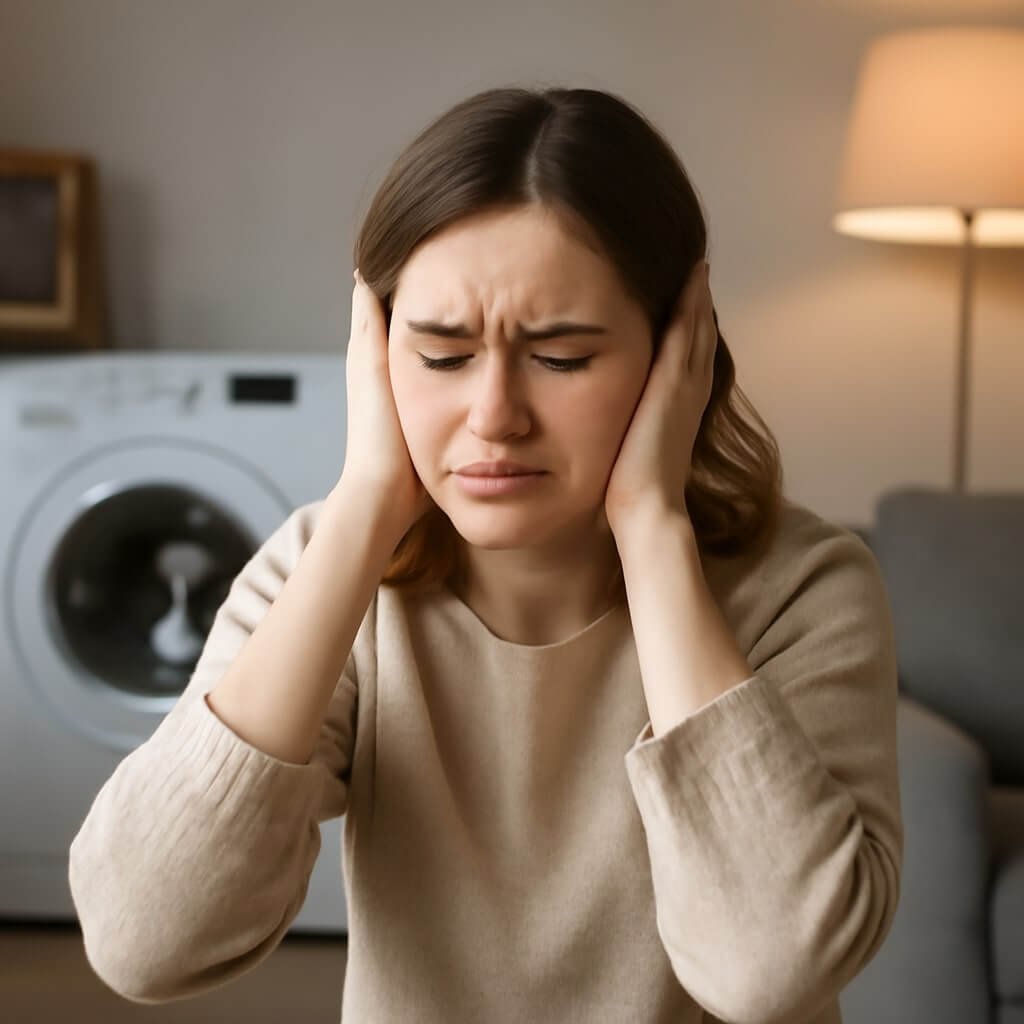If you’ve recently noticed an unusual, lingering smell in your house that resembles fresh paint, you’re not alone. Many homeowners are perplexed by the scent, which can make the living space feel uncomfortable. Fortunately, this common issue has various causes, some of which are easy to fix, while others may require more attention.
In this article, we will explore 10 powerful reasons your house might smell like paint and offer practical solutions for addressing the issue. From freshly painted walls to moisture buildup, understanding these causes can help you eliminate the odour and improve your indoor air quality.
1. Freshly Painted Walls and Surfaces
The Role of VOCs in Paint
The most obvious cause of a paint-like smell in your home is freshly applied paint. When you paint a room or surface, the volatile organic compounds (VOCs) present in the paint evaporate into the air. VOCs are responsible for the distinctive odour often associated with new paint. These compounds are released during and after application, which is why the smell lingers for a while.
How Long Do Paint Smells Last?
The length of time a paint odour lasts depends on several factors, including the type of paint used and the ventilation in the room. Generally, low-VOC paints have a milder smell and dissipate more quickly, often within a few hours to a couple of days. However, traditional oil-based paints or those with high VOC content can take a week or more to fully air out.
2. Newly Installed Furniture or Carpets
Synthetic Materials and Their Impact
Another common reason your home might smell like paint is due to newly installed furniture or carpets. Many modern furniture pieces and carpets are made from synthetic materials such as PVC, which can emit chemical odours. These odours can mimic the smell of fresh paint and linger for several days or even weeks after installation.
How to Reduce the Smell of New Furniture
To minimise the smell, try airing out your home by opening windows and using fans to increase airflow. You can also use activated charcoal bags or baking soda to absorb odours from new furniture and carpets.
3. High Humidity and Moisture
How Humidity Affects Paint Odours
Humidity can play a significant role in the way paint smells in your home. If there’s excessive moisture in the air, it can cause the paint to release more VOCs. This is especially true in homes with poor ventilation, where the humidity remains trapped inside, exacerbating the smell of fresh paint or other chemical odours.
Solutions for Dealing with Excess Moisture
To address moisture issues, consider investing in a dehumidifier to reduce humidity levels in the home. Proper ventilation is also key—ensure that your bathroom fans, kitchen vents, and windows are all functioning properly to allow air circulation.
4. Old Paint or Lead-Based Paint Remnants

Health Risks of Lead-Based Paint
If you live in an older home, you may still have remnants of old paint that could contain lead. Lead-based paint, especially in homes built before 1978, can produce a distinct smell similar to fresh paint. This paint can be hazardous, especially if it begins to chip or deteriorate.
How to Safely Remove Old Paint
To safely remove lead-based paint, consider hiring a professional who can follow the proper protocols. If you decide to do it yourself, make sure to wear protective equipment, such as gloves, a mask, and goggles, and dispose of the paint properly.
5. Mould or Mildew Growth
Identifying Mould-Related Paint Smells
Mould and mildew can often produce an odour that closely resembles paint. This is because mould produces a musty, earthy smell that can mimic the scent of certain paints or chemicals. If your house smells like paint and you’ve noticed dampness or visible mould, the two issues may be linked.
Effective Mould Removal Techniques
Mold can be removed using various cleaning agents such as vinegar, hydrogen peroxide, or commercial mold removers. Be sure to address the underlying moisture problem to prevent the mold from returning.
6. Cleaning Products with Strong Odours
Common Household Cleaners that Contribute to Paint-like Smells
Some household cleaning products, especially those containing ammonia or bleach, can release strong odours that are often compared to paint fumes. These chemicals may react with air and other substances in the environment, causing an overpowering scent.
Safer Alternatives for Cleaning Your Home
Switching to natural cleaning products, such as those containing vinegar, lemon, and baking soda, can help reduce strong chemical odours. Additionally, using essential oils in your cleaning routines can leave your home smelling fresh without harmful chemicals.
7. HVAC System Issues
Why Your HVAC Might Be Spreading Paint Smells
If you notice a paint-like smell coming from your heating or air conditioning system, the odour could be caused by dust or debris trapped in the ducts or the HVAC unit itself. When the system operates, it can spread these smells throughout the home, making the paint-like odour even more noticeable.
How to Clean and Maintain Your HVAC System
Regular HVAC maintenance, including changing the filters and cleaning the ducts, can help prevent odours from spreading. It’s also a good idea to have your HVAC system professionally cleaned to ensure it’s running smoothly.
8. Chemical Reactions in Household Products
Household Chemicals That Can Cause Paint-like Odours
Sometimes, the source of the paint smell isn’t from a specific product but from the chemical reactions between different household cleaners or materials. For example, mixing certain types of cleaners or using multiple chemical products in a confined space can cause them to release vapours that resemble paint.
How to Avoid Chemical Reactions in Your Home
To avoid these reactions, always read labels and use cleaning products as directed. Never mix different types of chemicals unless specified by the manufacturer.
9. Poor Ventilation and Air Circulation
The Link Between Airflow and Odours in Your Home
Poor ventilation can cause any lingering smells to become trapped indoors, making odors like paint seem more prominent. Without proper air circulation, fresh air cannot replace the stagnant air, allowing smells to build up over time.
How to Improve Ventilation in Your Home
Improving ventilation can be as simple as opening windows or using exhaust fans. Installing air purifiers with HEPA filters can also help circulate the air and remove odours.
10. Pets and Their Influence on Household Odours
Pets and Odour Traps in Your Home
Pets, especially cats and dogs, can sometimes contribute to smells that resemble paint. Their fur, urine, or even food can cause certain areas of your home to develop an odour that may be mistaken for fresh paint.
How to Address Pet-Related Smells
Regular cleaning of pet bedding, carpets, and furniture can help reduce these smells. Consider using pet-safe odor eliminators and maintaining your pets’ hygiene to minimize odor buildup.
Frequently Asked Questions (FAQs)
- How can I eliminate the paint smell faster?
- Increase ventilation in the affected areas by opening windows, using fans, or installing air purifiers. Low-VOC paints may also reduce the intensity of the odour.
- Is the paint smell harmful to my health?
- The smell from fresh paint, especially with high VOCs, can cause headaches or dizziness in sensitive individuals. Prolonged exposure can lead to more serious health issues.
- What should I do if I have mould in my home?
- Mould needs to be removed promptly using proper cleaning techniques. If the mould growth is extensive, it’s best to consult with a professional.
- Can new furniture cause a paint smell?
- Yes, synthetic materials used in furniture can release chemical odours that mimic the smell of fresh paint. Proper ventilation and odour absorbents can help.
- How long does the smell of new paint last?
- The smell of new paint can last anywhere from a few hours to several weeks, depending on the type of paint used and how well the space is ventilated.
- What can I do if my HVAC system is spreading the odour?
- Regular cleaning and maintenance of your HVAC system, including changing filters and cleaning ducts, can help prevent odours from being spread through the system.
Conclusion
Understanding why your house smells like paint can help you take the necessary steps to eliminate the odour. Whether it’s freshly applied paint, new furniture, humidity issues, or even pets, there are effective solutions to address each cause. By improving ventilation, maintaining your home, and taking care of potential issues like mould or HVAC concerns, you can enjoy a fresh-smelling home once again.













